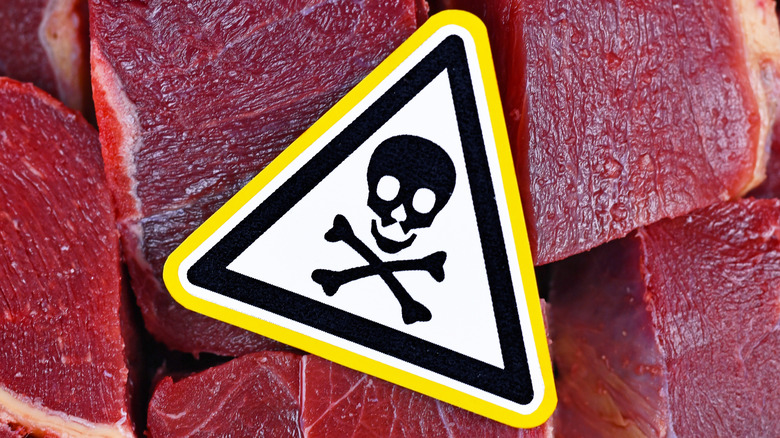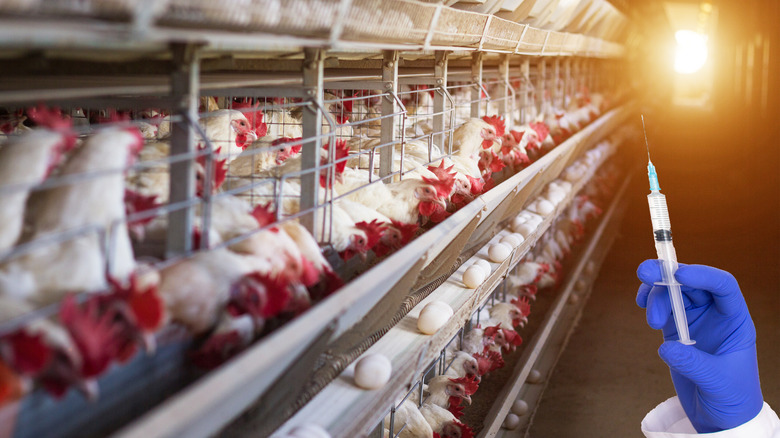A New Report Highlights The Dangers Of Excessive Antibiotics In Our Meat
When it comes to dietary habits, many people have been trying to do a little better in recent years. The issue is that there is essentially zero consensus regarding what food choices are actually preferable. A person could fully commit to eating a superfood-rich diet, but what will they do when they realize that their favorite meal isn't climate-conscious?
Things are made even more complicated by modern factory farming processes. Consumers may want to think about whether or not the animals they're eating were raised and processed in a humane manner, and they might want to consider the disastrous effect that factory farming has on the environment. The unexpected effects of industrial agriculture could have life-threatening consequences.
Factory farming is thought to be responsible for a staggering loss of human life, as the industry's reliance on antibiotics has resulted in bacteria that is immune to a lot of modern medicine.
What excess antibiotics mean for your meat
The logistics of factory farming require many animals in close quarters, and that inevitably leads to disease outbreaks. However, the problem isn't with treating sick animals. Each year, more than 15 million pounds of antibiotics are given to livestock as a preventative measure — that's 84% of all animal antibiotic usage. That means that your next hamburger could contain a dangerous amount of antibiotics.
According to an April 7 report by World Animal Protection, there were just under 1 million human deaths and around 35 million cases of illness in 2019 that can be attributed to factory farming. The report centered on four bacterial infections that are commonly associated with industrial livestock agriculture, namely, "... Staphylococcus aureus, Escherichia coli, Campylobacter, and non-typhoidal Salmonella."
The report goes on to claim that the death toll will grow by a factor of two over the next few decades. Furthermore, World Animal Protection suggests that the economic toll that factory farm disease-linked instances of employees missing work, which already cost $400 billion in 2019, could be a $1.67 million problem by as soon as 2050.

